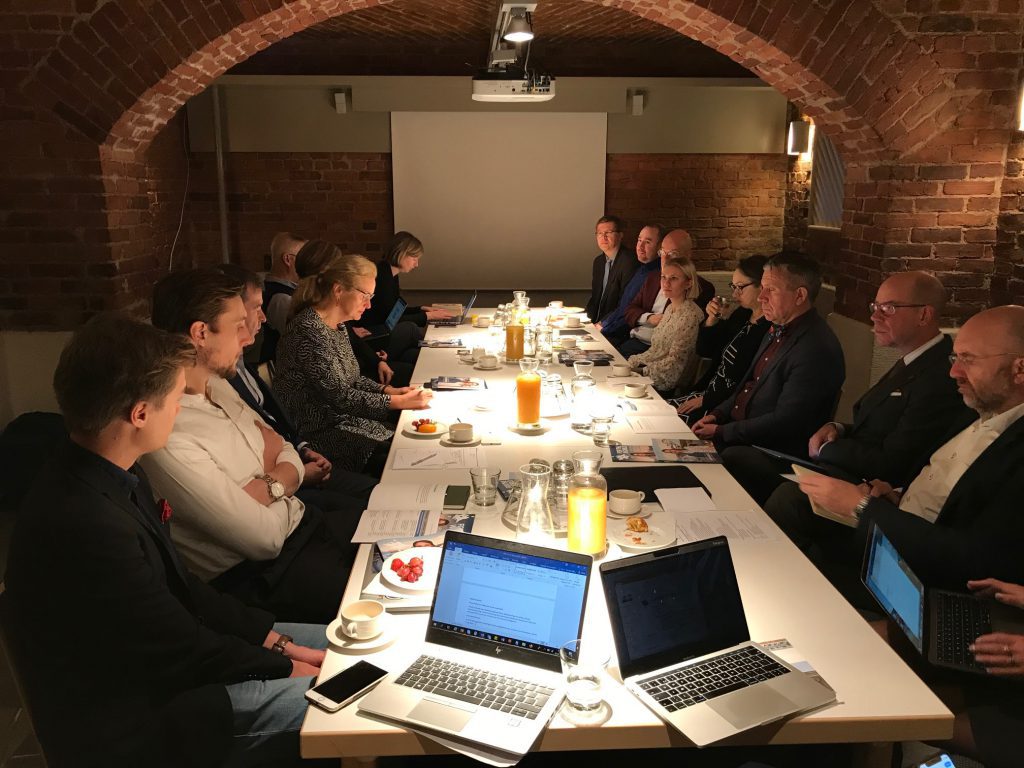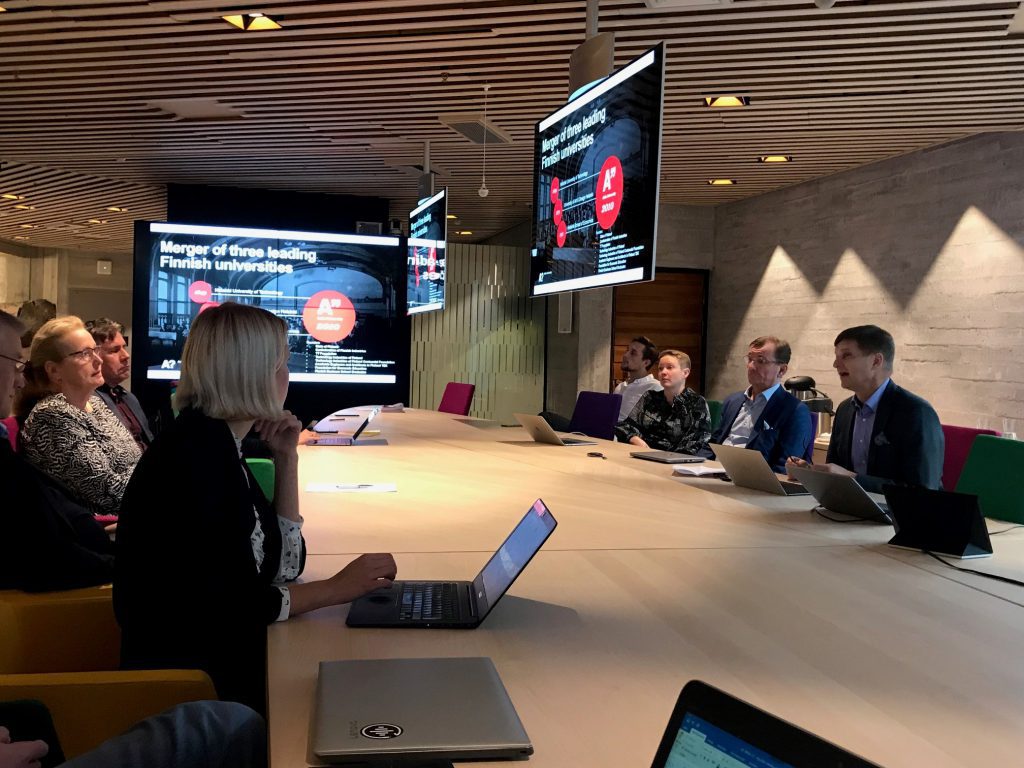On Monday the Management Council visited the University of Helsinki and Aalto University, two successful higher education institutions experiencing exciting development. We are already cooperating with both of them, but there is great potential to expand our range of partnerships. There are many projects on the research side, and in terms of education, we cooperate in the Nordic Council of Ministers’ Nordplus programme and in other ways.
In our dialogue with the management of each university, we focused on four questions: experiences from Finland’s autonomy reform, quality assurance and enhancement systems, strategies for internationalisation and attitudes to ranking systems. The University of Helsinki has a similar organisation to ours – a full-scale research university with a long history – whereas Aalto is the result of a merger between three higher education institutions just under ten years ago: Helsinki University of Technology, Helsinki School of Economics and the University of Art & Design Helsinki. Successful development has followed and they are now attracting great international interest and are seen as a lively challenger to more established universities of technology. Aalto Design Factory Network is one impressive initiative, which offers students challenge-driven education at companies around the world.

Finland implemented an autonomy reform a few years ago and it was interesting to hear about their experience. Both universities thought the reform had led to greater freedom to act and more scope to take new and necessary initiatives. The right to own property and companies, to borrow and to prioritise more freely has opened many new paths, though the financial responsibility has naturally also increased. Aalto was established in conjunction with the reform, on the initiative of the three institutions, and became one of two foundation universities. They saw the potential to create something new when the reform was discussed and took the opportunity.

We noted that the internal discussion on quality asurance and enhancement systems, ranking and internationalisation strategies at our different institutions follows similar lines. The day provided input for our continued discussion in the ongoing work on our mission, goals and strategies document in Uppsala. In conclusion, we see much to learn from Finland and that there is definitely every reason to consider possibilities of further developing cooperation with our neighbours to the east.
